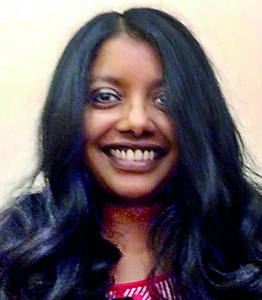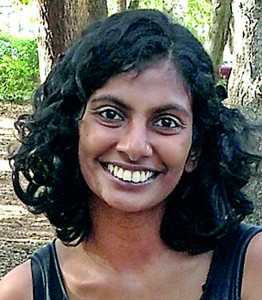Sunday Times 2
Through a daughter’s eyes
View(s):My sister, Narmada, and I called my mother “Daji”. She was a public figure to others but not to us. A few days before she died, I remember sitting on her lap. She was in a sari and I pressed into her body while our little puppies played at our feet and she remained lost in thought.
A close friend said my mother had talked about the possibility of her dying. “Maybe my children will be angry with me if I die,” she had said to him. “But when they grow up, they will know that they are the strong women they are because of me.” This is absolutely true

Narmada
We saw our capable, strong and brilliant mother navigate our world and learned about what mattered. She wanted us to care about the people we shared our lives with. She brought us up to challenge unacceptable norms, to maintain our own moral compass.
Sometimes, when she came home after collecting stories, she would sit and cry at the sheer horror of what was going on. She was up at 4.30 am every morning, cleaning the house, getting us ready for school and organising her day’s work. She talked to us often about my father, preparing us for the possibility that he might die because of his political involvement but also telling us how important that political involvement was.
At the time of the Indian occupation, the Indian army would patrol the streets at night. If they heard a noise, they would throw a grenade at the house. The adults built a structure in one bedroom of tables and chairs piled onto each other. If there was nighttime shelling and bombing, my sister, cousin and I slept under there.
At night, we would lie down, still as ever, listening to the thump of boots up and down the street.

Sharika
I drew a picture of us sitting in our bunker with helicopters hovering overhead. My mother put it up in her office. Once, she showed it to the Indian Army Brigadier who often came to question her. This is how we saw the war, she told him.
In August, I went to the Jaffna Medical Faculty where she worked. Her former office was unbearably familiar to me. Her photograph was on the wall. I went to the museum she had started. Three technicians who worked under her told me how she had treated them like equals, with respect. They missed her.
There has been no anatomist there since her but the workers have lovingly maintained her specimens. As a child, I never thought much about the values my mother tried to raise us in. As an adult I realise that, in a deeply hierarchical and gendered society, my mother had practiced what she preached.
She would put on music and we would dance together. I remember calling for her when I was ill and feeling nothing could wrong when she was there. At times, she was very sad. At times, she had so much joy.
I have never once wished that I had a different mother. But I have wished on more occasions than you can imagine that she were still alive.
(Sharika Thiranagama teaches at Stanford University and lives in California with her husband and two children)

